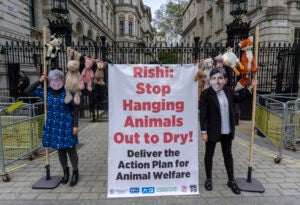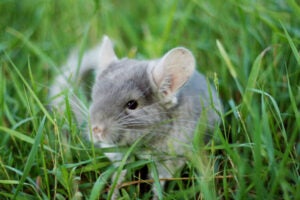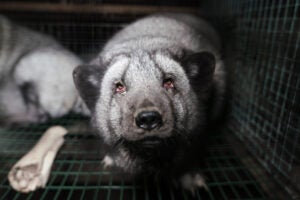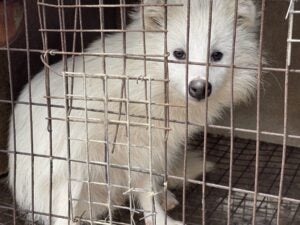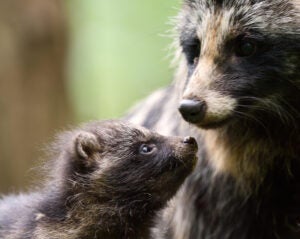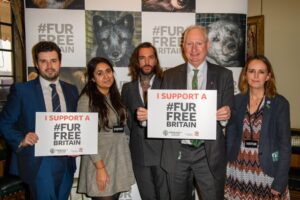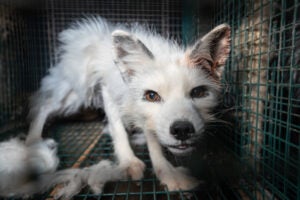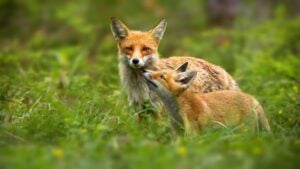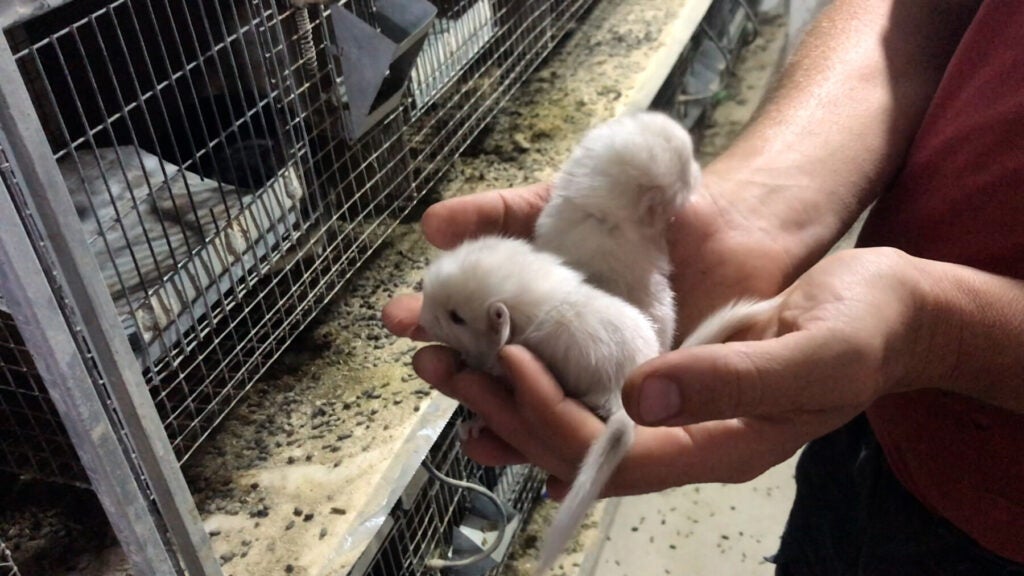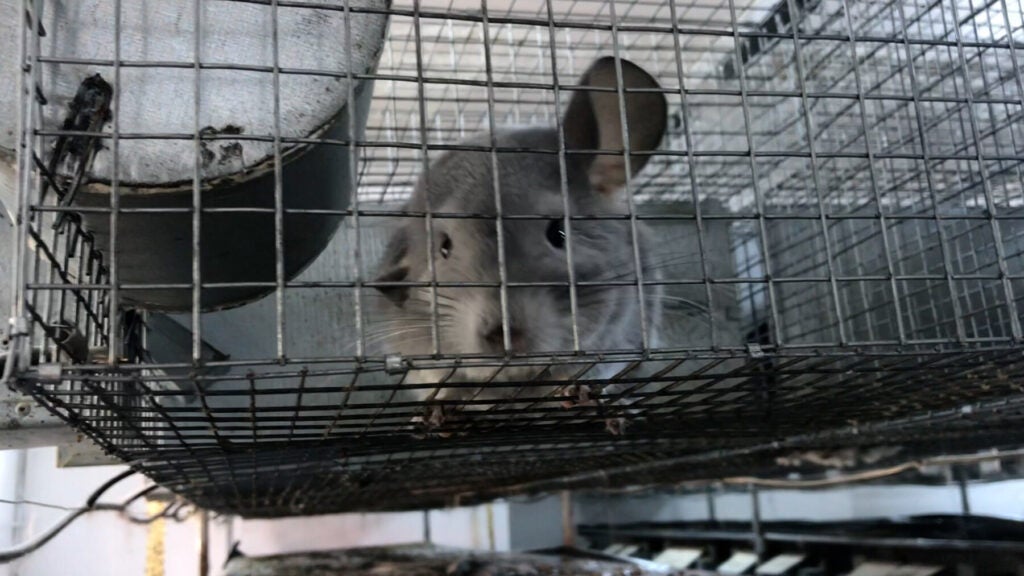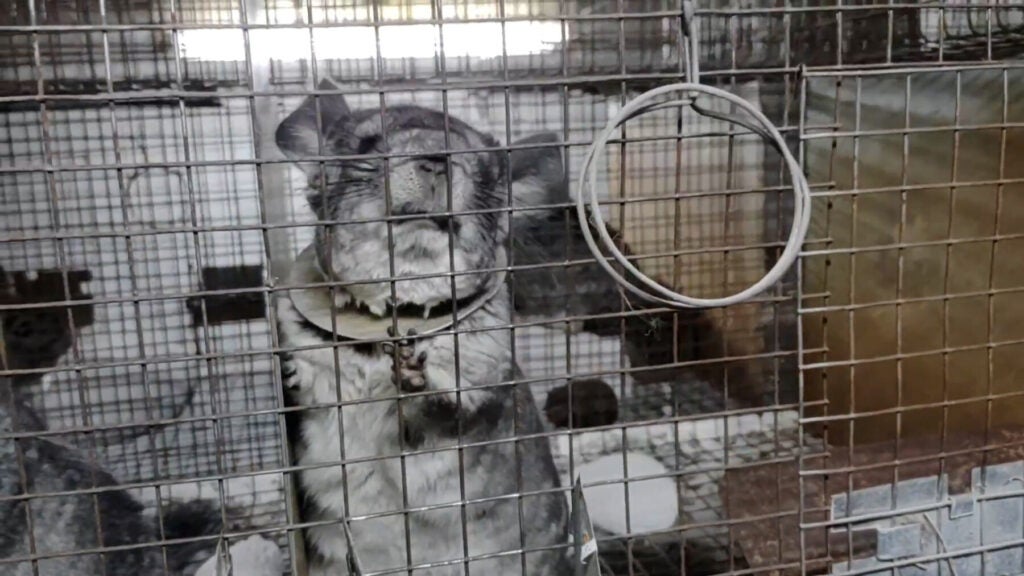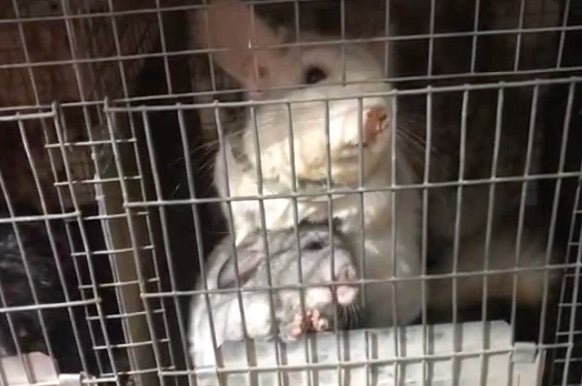
BUCHAREST, Romania―Romanian politicians and animal protection organizations from across Europe joined forces to call for a ban on fur farming in Romania, during a round table event in the Romanian parliament. The Romanian office of Humane Society International organized the event, which well-known TV presenter Simona Gherghe moderated.
Participants at the “For a fur-free Romania” event urged the Chamber of Deputies to approve draft legislation currently under consideration that would ban fur farming in Romania, putting an end to the cruel practice of breeding and killing animals such as mink and chinchilla for their fur. The Romanian Senate voted in favor of the proposed legislation in December last year, but the Chamber of Deputies has the deciding vote. If passed, the ban would see Romania become the 20th European country to close down such farms.
Representatives from 13 animal protection groups that are members of the Fur Free Alliance—an international coalition working to end fur farming—were present at the event to support the proposed law to ban fur farming. The ban was proposed last year following the release of a shocking undercover investigation by HSI/Europe exposing the appalling conditions on fur farms across Romania. The first ever footage taken inside Romania’s chinchilla fur farms showed animals confined in small, filthy wire cages, their legs often slipping through the wire floor, only to be killed for fur fashion in improvised gas chambers at just a few months old.
Speaking on behalf of the initiators of the proposed ban, deputy Gheorghe Pecingină called for a favorable vote in the Chamber of Deputies as soon as possible. Pecingină said: “It is time for Romania to shut down its fur farms, and for the Chamber of Deputies to follow the example of the Senate by voting in favor of this initiative. There are only a handful of such farms left in Romania, only for two species – chinchillas and American minks. The draft law no. 23 /2023 must pass, and Romania must join the majority of member states of the European Union that have banned this cruel, anachronistic activity.”
Humane Society International/Europe announced the launch of a publicity campaign and petition to demonstrate public support for a fur farming ban. Andreea Roseti, Romania director for HSI/Europe, said: “I urge Romania’s members of Parliament to make the right decision from a moral standpoint and ban fur farms. Not only is it morally unacceptable to cause animals suffering in the name of fashion, but there are so many fur-free alternatives to such clothing products. The conditions on Romanian fur farms are terrible, as demonstrated by the videos, photos and testimonies made public last year by HSI/Europe.”
Joh Vinding, chairperson of the Fur Free Alliance, said: “We applaud the Romanian politicians who are supporting legislation to ban fur farming. A ban will make Romania part of a growing movement across Europe where already 19 countries have listened to the overwhelming public opinion that animals should not suffer for fashion. This important legislation will save thousands of animals and bring us one step closer to a fur free Europe.”
At the end of the discussion, Fur Free Alliance members submitted a letter addressed to the Prime Minister and members of the Chamber of Deputies, requesting the rapid approval of the draft law for banning fur farms in Romania. The letter cited animal protection and public health as primary reasons for such a ban, and highlighted the decline in popularity and economic value of the fur industry in recent years.
To date, fur farming has been banned in 19 European countries including 14 EU member states: Austria, Belgium, Croatia, Czech Republic, Estonia, France, Ireland, Italy, Latvia, Luxembourg, Malta, the Netherlands, Slovakia and Slovenia. Proposed legislation to prohibit fur farming is currently being considered in Poland and Lithuania. A further two countries—Switzerland and Germany—have implemented such strict welfare regulations that fur farming has effectively ended, and three other countries—Denmark, Sweden and Hungary—have imposed measures that have ended the farming of certain species. Only a small number of EU member states, such as Romania, still allow the farming of animals for their fur to continue.
Earlier this year, the Fur Free Europe European Citizens’ Initiative collected more than 1.7 million signatories from citizens of the European Union. Addressed to the European Commission, the ECI calls for a ban on fur farming and on the trade of fur products in the European Union.
Download photos and video of Romanian chinchilla fur farms
ENDS
Media contact: Wendy Higgins, director of international media: whiggins@hsi.org

